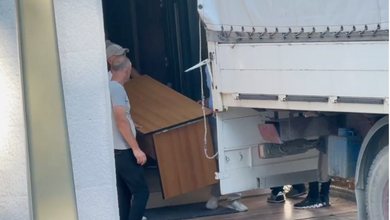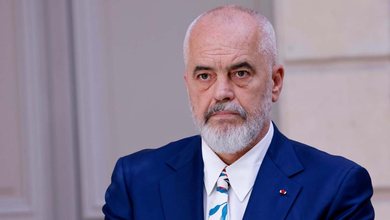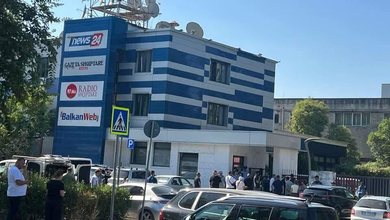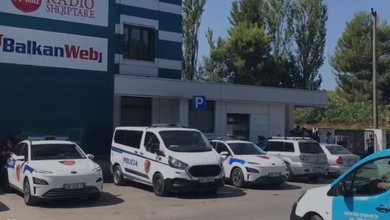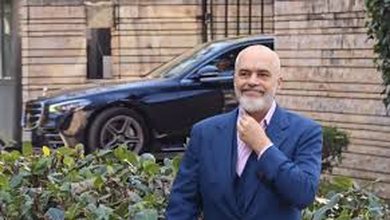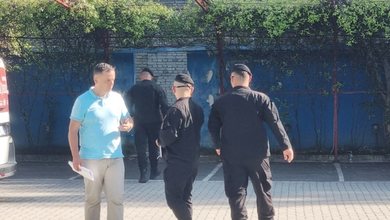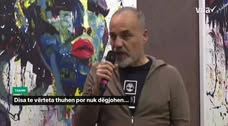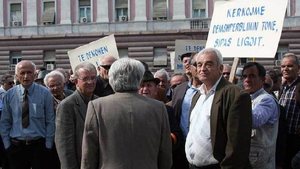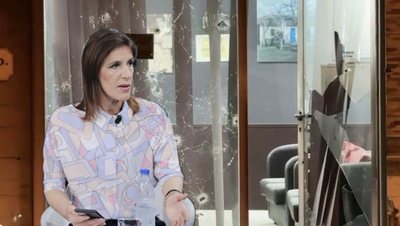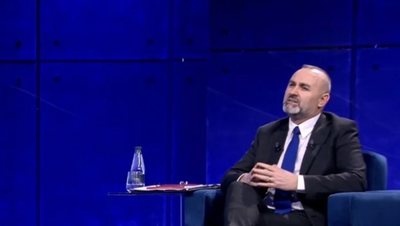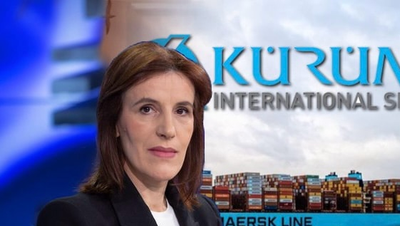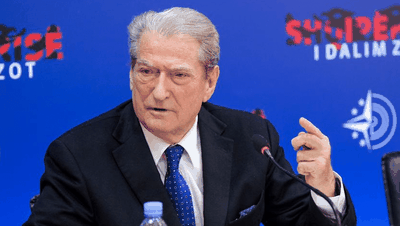
The announcement as a 'strategic investor' of businesses linked to the three private national televisions deepens, according to experts, the complicated relationship between the media and the government in Albania, endangering pluralism, editorial freedom and the public's right to be informed impartially.
The Strategic Investment Committee, chaired by Prime Minister Edi Rama, approved on April 10 the "strategic investor" status for two private companies - "Anima Con" and "EB Construction", which plan to build a hotel and a residential complex in one of the most coveted areas of Tirana.
The decision, taken during a meeting held behind closed doors, was argued by the government as part of a strategy to promote economic development and investments in the tourism and construction sectors, two of the main pillars of the Albanian economy.
According to official documents, this project will benefit from procedural convenience and administrative advantages, including speeding up procedures for construction permits.
Behind the company 'Anima Con' stands Lorela Hoxha - director and shareholder of Top Media, one of the largest media groups in Albania - owner of the national television "Top Channel".
The announcement of 'Anima Con' as a strategic investor is not an isolated case, as previously companies affiliated with the two other national televisions - TV Klan and Vizion Plus, have also benefited from the same status from the government.
Taken together, these three broadcasters control more than 2/3 of the media market, raising concerns among experts and freedom of expression organizations that indirect benefits from the state put their editorial independence and pluralism in the media market at risk.
“The influence is strong and the impact is visible,” says Koloreto Cukali, chairman of the Albanian Media Council. “Just as financial power can influence politics, parties or different sectors of the economy, the media is also controlled,” he explained.
The intertwining of media and business interests with the state, according to experts, has brought about a culture of self-censorship in newsrooms, where criticism of the government is seen as a threat to the owners' commercial interests.
A 2024 survey by BIRN and SCiDEV found that two-thirds of Albanian journalists have experienced restrictions on free reporting, often on issues affecting corruption and abuse of power.
“When the media owner becomes a business partner with the state, critical reporting on the government becomes a direct cost to its investment,” said Blerjana Bino, head of SCiDEV and freedom of expression reporter at the Safe Journalists Network.
“Editorial offices sense the 'red line' and exercise restraint so as not to jeopardize multi-million dollar projects.”
Asked by BIRN via email, the three national broadcasters – Top Channel, Klan and Vizion Plus – did not comment on the acquisition of 'strategic investor' status by affiliated companies and the impact of this status on their editorial policies.
Complicated relationship
In a country where media pluralism is guaranteed in theory, the control of audiences by a handful of power-connected entrepreneurs is turning journalism into an increasingly difficult activity, calling into question the accurate and impartial information of the public.
According to 2023 data released by the Media Ownership Monitor, three national private broadcasters together own 65.6 percent of the free-to-air television market. When digital broadcasters affiliated with the same shareholders are included in the calculation, control increases to around 77 percent.
The attempt by governments in Albania to control the media through financial incentives is early. Initially, this effort was related to the distribution of state advertising, especially for newspapers that, in the absence of a stable sales market, saw this as an easy source of funding.
In exchange for advertising, the media usually guaranteed laudatory articles, attacks on critics, and turning a blind eye when it suited the government. In contrast, media outlets that did not benefit from state advertising maintained a critical stance toward the government or relevant ministries.
But advertising was never the only benefit. Some of the country's media outlets were created as appendages of companies in other fields, with the aim of securing favors from politics and protecting their interests. Clashes between the media and the government, when the latter or segments of it took repressive measures against companies affiliated with the media, are numerous.
For example, in November 2022, Prime Minister Rama accused Top Channel of blackmailing a government agency, accusations that were denied by the television station.
The most severe clash was between the prime minister and businessman Irfan Hysenbelliu, owner of News 24 television, Panorama newspaper, and Balkanweb news portal. In December 2022, a hotel he owned on the coast was destroyed by TNT, an event he described as an attack on media freedom.
On August 9, dozens of police officers surrounded the offices of News 24 television early in the morning, located in the former Autotraktor Plant in Tirana, after the building had been transferred to the ownership of the state-owned arms production and trading company “KAYO.” At 7:36 a.m., the television signal was cut off.
Freedom of expression organizations have described the eviction of the television station from its rented premises and the blockade of a second building, where the broadcasting studios are located, as a violation of media freedom. The government, for its part, has presented the issue as a property dispute, which has been resolved by the court.
While Hysenbelliu's companies were targeted and damaged, other companies linked to the country's main media groups benefited from strategic investor status, which brings with it a package of benefits: public property, funds from the state budget, and administrative convenience.
The three national media outlets – Klan, Top Channel and Vizion Plus – owned by three families that also own digital networks and digital frequencies, are all beneficiaries of this status.
The Dulaku brothers, owners of Vizion Plus and the Tring TV network, were the first to benefit from the status through the company “Concord Investment”. In 2017, they received this status for the construction of the “San Pietro” complex in Lalzi Bay, which included villas and a hotel. The status was accompanied by the right to use the coast and public investments in infrastructure (roads, water, energy). The Strategic Investment Committee changed the decision twice, increasing the construction area.
Also in 2017, the same company received status for another project in Dhërmi, “Gone Perivol”, with the same benefits. In total, for both projects, the company plans an investment of 120 million euros.
Lorela Hoxha, administrator and shareholder of Top Channel, obtained the status in April 2025 for the construction of a hotel in Tirana, together with partner Ilir Bregasi. They received assistance with documentation and permits, while the area is located in cadastral zone 8160 – one of the most coveted areas of the capital, which includes the center, “Dëshmorët e Kombit” boulevard and the area near the Artificial Lake. The documents state that they own most of the land and will have time to buy the rest.
Meanwhile, Aleksandër Frangaj, owner of TV Klan, was included in the strategic investment scheme after purchasing the "White Roads" hotel from the "Gjikuria" company in April 2025 - a project that had benefited from strategic investor status in 2022 and 9 thousand square meters of public land with a rent of 1 euro.
In August 2023, the Committee also approved an additional 22 thousand m² of public land to improve the functioning of the resort. At the end of 2023, the project also received the status of a “5-star accommodation structure – special status”, with additional fiscal and procedural benefits.
The 'White Roads' resort is located near the natural monument "Palasa Stream Delta" and is expected to cost 21 million euros.
The threat to media freedom
The complex relationship of media companies with the government and the benefits that derive from it pose, according to experts in the field, a great risk to the fragile freedom of the media in Albania.
“When the media ownership structure is involved in a business, or dominates the business market, journalists of that media face many difficulties in reporting fairly and independently on the same topic,” says Elvin Luku, a lecturer and media expert who runs the organization MediaLook in Tirana. “They increasingly tend towards self-censorship,” he added.
However, for Luku, Albania is not a unique case, as other countries have similar problems; and in practice, the benefits of media-related companies from public funds are not prohibited.
But Luku adds that in some Western countries there are protective measures against this phenomenon, including media owned by a large number of shareholders with limited share quotas and a clear separation between the editorial line and management.
Albania, on the other hand, not only has a concentrated media market, but the latter are "mainly owned by a single owner or family shareholder structure."
Blerjana Bino also says that the relationship between the government and media-related businesses is problematic and also has a major impact on the quality of information the public receives.
“Increasingly, national television stations with broad control over the audience are shifting media content towards propaganda, avoiding critical reporting on topics of fundamental interest to the public,” says Bino.
She says that through economic influence, the government dictates the public agenda, while the media loses its role "as the fourth estate and an instrument for accountability to institutions."
Bino notes that financial dependence has led to a poverty of democratic debate in the country. “As a result, the audience is exposed mainly to a single narrative, while critical voices and free thought are reduced to a minimum,” she says.
Koloreto Cukali describes an even bleaker situation. According to him, the economic relationships between the government and media-related businesses have destroyed journalism and made censorship “like daily bread.”
“There comes a point where there is no more journalism, but only propaganda broadcast tapes,” says Cukali.
Misinformed voters
The government's influence over the media's editorial policies was also evident in the recent parliamentary elections. According to OSCE-ODIHR observers, voters were denied independent information.
"The concentration of media ownership, which undermines the plurality of news sources, together with self-censorship among journalists and the dominance of media coverage by the two largest parties, limited the ability of voters to make an informed choice," the preliminary report of observers for the May 11 elections reads.
AMA's monitoring of the airtime given to political forces by television channels also showed bias. A BIRN analysis of the media coverage of the campaign in the country also suggests that control over the media was a factor in the ruling party's victory.
On the three private national television stations – TV Klan, Top Channel and Vizion Plus, which control more than two-thirds of the television audience – the Socialist Party received 52% of the news broadcast time, compared to 44.5% for the Alliance for a Greater Albania. Meanwhile, all other electoral candidates received less than 4%.
Arlind Qori, chairman of the Together Movement, one of the political forces that won a seat in the new parliament after the May 11 elections, made criticism of the government's control over the media part of his campaign.
“It is impossible for a media outlet to benefit from public property and large funds from the state budget, especially in the conditions of a corrupt and corrupting institutional structure, and for this not to affect its editorial independence,” Qori told BIRN.
He says that while state advertising was a form of control, granting benefits such as strategic investor status has eliminated editorial independence.
"But now, with the acquisition of strategic investor status by the owners of these media outlets, there can no longer be any talk of their editorial independence," said Qori.
According to him, the fact that these benefits come from a corrupt governing system, which does not make decisions and does not distribute budget revenues for the public interest, "but to weave a web of clientele with powerful economic actors," makes freedom even less possible.
Qori said that journalists who "forget" the connection between the owner and the government financier are punished.
“Financial dependence on the government, but also on economic actors closely linked to the government, places Albanian media before a dilemma: conform or disappear - at best, marginalize,” he says.
The head of the Together Movement emphasizes that this unhealthy relationship has made Albanians victims of daily misinformation.
"Issues of public interest that are not covered at all by the media; issues that are misinformed about; communities whose problems do not surface in the public spotlight; social and political actors who are marginalized," he said.
Even media experts raise doubts about the quality of information in such a situation.
"If informing the public in news editions hides economic interests and non-transparent financial benefits, we are no longer dealing with information and the risk of disinforming an entire public opinion is very great," says Elvin Luku.
Blerjana Bino, for her part, points out that the Albanian public is very much at risk from propaganda and biased information as a result of "the financial and political ties of the mainstream media with the state."
According to her, from following the main media in the country, the bias in covering the so-called strategic investments is evident.
Bino says that media reports present these investments "as entirely touristic and an achievement for economic development, without focusing on the environmental consequences, concreting or concerns raised about expropriations by local residents."
BIRN


